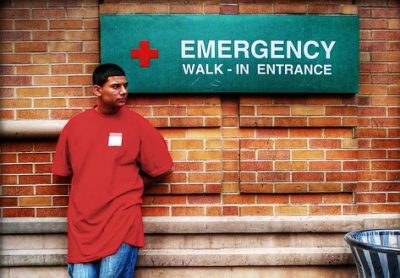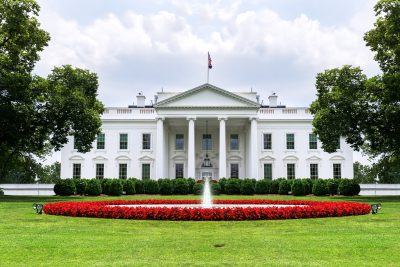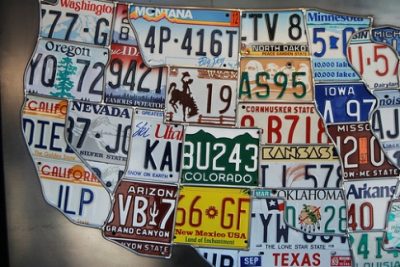Integration

Old Dogs, Old Tricks: Nativist Groups Declare War on Clergy
Nativist groups are pulling an old strategy out of their play book as they attack members of the clergy. This tired exercise includes identifying a constituency that is in support of solving our nation’s immigration problems (currently the religious community), coordinating with other like-minded groups to disseminate faulty arguments (this time using the bible to condemn immigrants), claiming to be acting in the name of someone other than your self (in this case the American worker), and finally going after them with all the fervor you can muster to convince them that the bible preaches against helping strangers, that leaving the status quo in place is good for American workers and see how many spiritual leaders you can peel off. Read More

Nobel Prize Winners and Immigration Policy
Digital cameras, cancer and aging research, and technology networks that carry voice, video and high-speed internet data around the world are just a few reasons to thank this year’s Nobel Prize winners. We can also thank smart immigration policy that brought three of this year’s winners to our shores in addition to a young student from Kenya whose son is this year’s winner of the Nobel Peace Prize. Who are these foreign-born innovators? Read More

Report Details Dangers of Denying Health Care Coverage to Legal Immigrants
Last week, the Senate Finance Committee completed its mark up of its health care reform bill. Amendments that would have further restricted legal immigrants’ access to health care and imposed burdensome new verification requirements on everyone failed in the committee. Now both the Senate and the House have their work cut out for them as they combine various bills into one and bring them to the floor for final votes. It’s likely that we will see additional attempts to save money by cutting health care to legal immigrants. It’s also likely that more political statements about denying benefits to illegal immigrants will arise. This week the Migration Policy Institute released a new report, Immigrants and Health Care Reform: What’s Really at Stake? This groundbreaking report provides cold hard facts about the numbers of immigrants that would be affected by the various proposals in Congress. When analyzing the dangers of denying health care coverage to legal immigrants, MPI’s report examined Census data and discovered that: Read More

Non-English Speaking Mother Separated from Child: The Tragedy of Mixed-Status Families
A recent article on TIME.com follows the story of a young undocumented mother from Oaxaca, Mexico, whose baby, born in the United States, was taken away by the state of Mississippi because she “doesn’t speak English.” According to the article, the mother was allegedly deemed unfit “in part because her lack of English placed her baby in danger.” Putting aside your stance on immigration and ignoring obvious human rights violations, this story smacks of irony—the removal of a child by a country that seemingly prizes “American values”—and is indicative of our woefully broken immigration system. Read More

Faith and Leadership Required: A Closer Look at Last Week’s White House Meeting
Last week’s White House meeting on immigration marked another chapter in the years-long effort to enact comprehensive immigration reform. Janet Napolitano’s invitation to more than one hundred representatives from business, labor, faith, law enforcement, and immigration groups was a genuine attempt to listen to concerns and solicit ideas. The format—large group meeting addressed by the Secretary, small group discussion led by various DHS and White House officials, summary and surprise remarks from the President—gave people a chance to say just a little, but the cumulative effect was more important than we may realize. Read More

New Report from Cato Institute Highlights Economic Benefits of Legalizing Unauthorized Immigrants
Leading economists agree that the cornerstone of any immigration reform bill should be some form of legalization for the roughly 12 million undocumented immigrants currently living in the United States. Critics of legalization, namely enforcement-only cheerleaders, fail to realize that legalization would improve wages and working conditions for all workers—including the native-born—and would yield a net benefit to the recovering U.S. economy. One study estimates that an immigration reform bill which includes legalization would yield a net benefit of $180 billion over a ten-year period, while enforcement efforts alone would actually cost $80 billion over the same period. Read More

States and Localities Critical to Immigration Policies
Governors and mayors, state legislatures and city councils are playing an increasingly critical role in U.S. immigration policy. As a result of Congress’s inaction, states and localities are feeling pressure to take action on immigration, and many of the policies that directly impact immigrants’ lives—law enforcement, public benefits, driver’s licenses—are being driven by new state and local laws. Some state and local immigration policies have been positive and have helped to integrate immigrants into American communities. Others, however, have had a harmful impact on immigrants as well as on public health and safety. The National Conference of State Legislatures (NCSL), a bipartisan organization that serves the legislators and staffs of the nation's 50 states, recently published two documents that highlight the role that states play in immigration policy. One is a report on recent state activity, and the other is NCSL’s official immigration policy statement. Read More

Republicans on the Road to Demographic Self-Destruction
A slew of data from the 2008 election, released late last month by the U.S. Census Bureau, underscores—yet again—that Latinos constitute the fastest growing share of the electorate in the United States. Yet many Republican politicians seem to be going out of their way to alienate Latino voters. In an effort to appeal to the “base” of ultra-conservative whites needed to win Republican primaries, many in the GOP are trampling upon the Latinos they very well might need to win general elections. As the political theater surrounding the Sotomayor nomination illustrates well, a growing number of Republicans are trying their hardest to swim against the demographic tide. It is unlikely that they’ll be able to keep their heads above water for very long. Read More

Sharing the Costs, Sharing the Benefits: Inclusion is the Best Medicine
As policymakers debate the scope and form of the health care reform package now taking shape in Congress, it is important to understand the role of immigrant participation in the current health care system. Misconceptions about immigrants and their participation in our health care system abound, the facts demonstrate that immigrants can and should contribute to any new program. It is both good policy and common sense to treat access to health insurance for all as an investment in the nation’s public health. Categorical exclusions of any kind—whether of immigrants, redheads, or cat owners—are a mistake. It makes more sense to allow everyone to buy affordable health care. Read More

Rise in Latino and Asian Voters Marks Significant Change in Political Landscape
Today, the U.S. Census Bureau published new data, Voting and Registration in the Election of 2008, which tracks demographic characteristics of the 131 million U.S. citizens who reported that they voted in the 2008 presidential election. The Census Bureau’s new data set shows a significant increase of about 5 million voters from the 2004 presidential election—including 2 million more Latino voters and 600,000 more Asian voters. Relative to the presidential election of 2004, the voting rates for blacks, Asians, and Latinos each increased by about 4 percentage points. The voting rate for non-Latino whites decreased by 1 percentage point. Read More
Make a contribution
Make a direct impact on the lives of immigrants.
